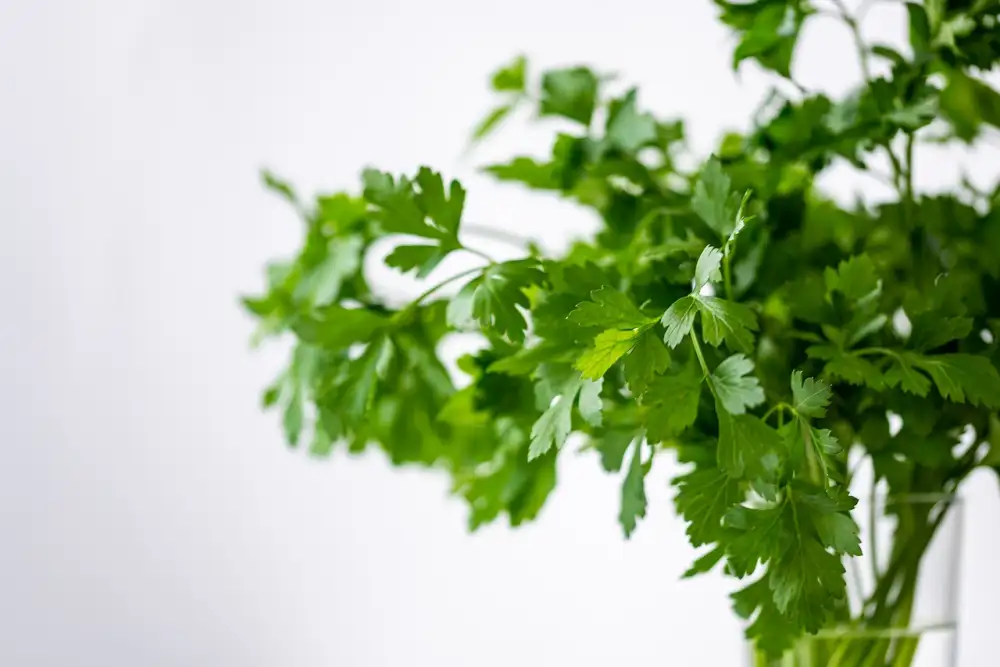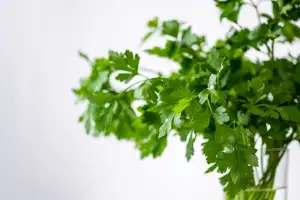Coriander vs. Cilantro: Unveiling the Truth Behind These Flavorful Herbs

Coriander and cilantro are two names for the same plant, Coriandrum sativum, but they refer to different parts of the plant. In the United States, coriander typically refers to the seeds of the plant, while cilantro is used to describe the fresh leaves and stems. This herb is widely used in various cuisines around the world for its unique flavor and aroma. Both coriander seeds and cilantro leaves have distinct tastes that can elevate dishes with their citrusy, slightly peppery notes. Whether you call it coriander or cilantro, this herb is a staple in many kitchens for adding depth and freshness to a wide range of dishes.
Botanical Distinction Between Coriander and Cilantro
Botanically speaking, coriander and cilantro come from the same plant, Coriandrum sativum. However, their names are used to distinguish between different parts of the plant. Coriander refers to the seeds of the plant, which are dried and used as a spice in cooking. On the other hand, cilantro specifically refers to the leaves and stems of the plant, which are commonly used as an herb in various cuisines around the world. This distinction is important to understand when following recipes that call for either coriander or cilantro to ensure you use the correct part of the plant for optimal flavor.
Culinary Uses of Coriander and Cilantro
Coriander seeds are commonly used whole or ground in Indian, Middle Eastern, and Latin American cuisines. They add a warm, citrusy flavor to curries, stews, pickles, and baked goods. On the other hand, cilantro leaves are popular in Mexican, Thai, and Vietnamese dishes. They are often used fresh as a garnish for tacos, salsa, soups, and salads. Both coriander and cilantro can be found in spice blends like garam masala or curry powder to enhance the overall flavor profile of a dish.
Flavor Profiles of Coriander and Cilantro
When it comes to flavor profiles, coriander and cilantro offer distinct tastes. Coriander seeds have a warm, spicy, and slightly citrusy flavor with hints of sweetness. On the other hand, cilantro leaves provide a fresh, citrusy, and slightly peppery taste with a hint of soapiness to some individuals due to genetic factors. While coriander seeds are often used in savory dishes like curries, soups, and stews for their earthy warmth, cilantro leaves are popular in fresh salsas, salads, guacamole, and as a garnish for their bright and zesty notes.
Health Benefits of Coriander and Cilantro
Coriander and cilantro are not only flavorful herbs but also packed with health benefits. Coriander is rich in antioxidants, vitamins A, C, and K, and minerals like potassium and manganese. It may help lower blood sugar levels, reduce inflammation, and promote digestion. Cilantro is known for its ability to rid the body of heavy metals like lead and mercury. It also has antimicrobial properties that can help fight infections and support heart health. Incorporating these herbs into your diet can contribute to overall well-being.
Tips for Substituting Coriander and Cilantro in Recipes
When substituting coriander or cilantro in recipes, it's essential to consider the flavor profile you want to maintain. If a recipe calls for fresh cilantro but you only have coriander seeds, use a 1:2 ratio (1 tablespoon of fresh cilantro equals 1/2 teaspoon of coriander seeds). For dried coriander, use half the amount of fresh cilantro called for in the recipe. If you're out of both herbs, try using parsley or basil as alternatives, keeping in mind that they will impart different flavors to the dish. Experimenting with different herbs can lead to exciting new culinary discoveries!
In conclusion, both coriander and cilantro are versatile herbs that add distinct flavors to dishes from various cuisines around the world. While they come from the same plant, their leaves and seeds offer different taste profiles, catering to a wide range of culinary preferences. Understanding the botanical differences, flavor nuances, and health benefits of coriander and cilantro allows us to appreciate their unique qualities and elevate our culinary experiences with these flavorful herbs. Whether you prefer the citrusy notes of cilantro or the earthy undertones of coriander, incorporating these herbs into your cooking can truly enhance the depth and complexity of your dishes.
Published: 04. 05. 2024
Category: Recipes



